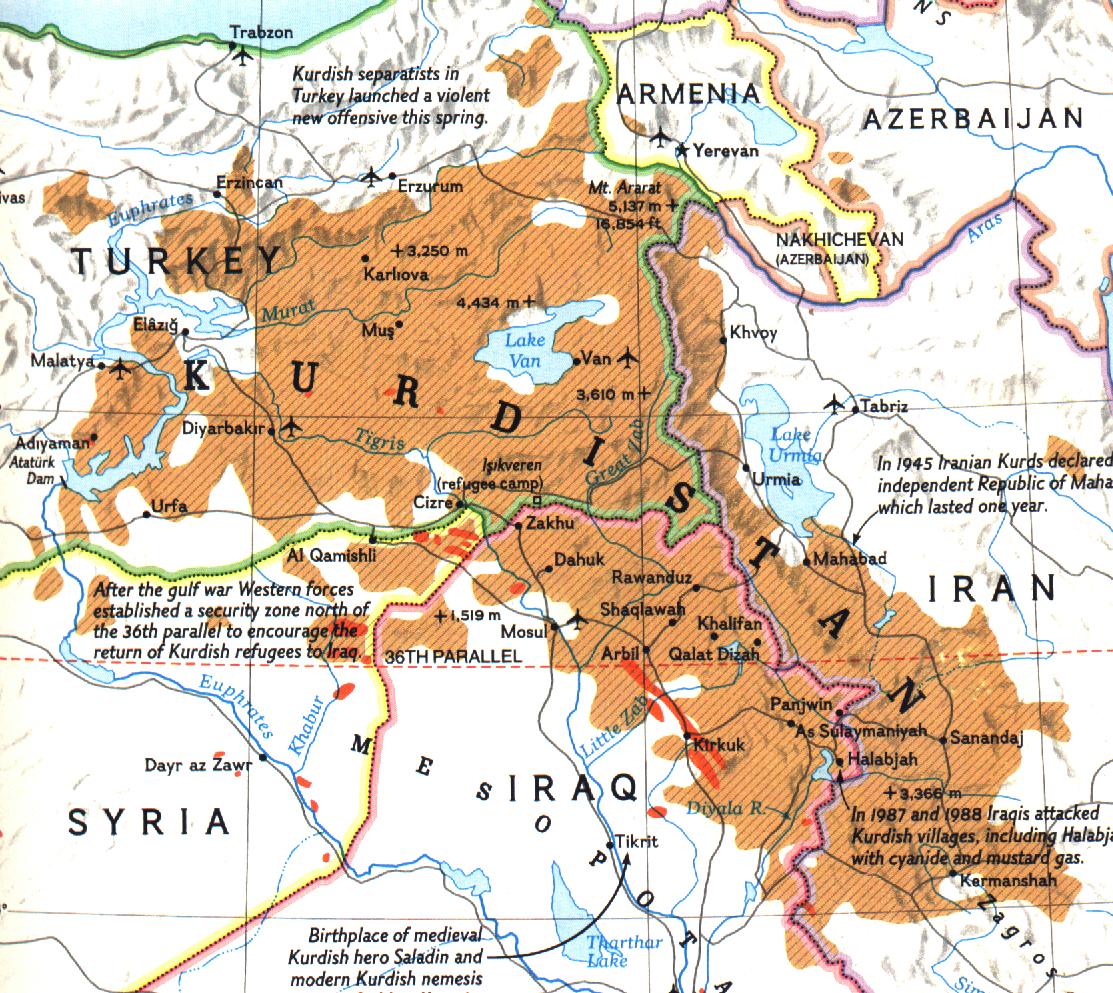Related:
Below is an excerpt from the article, "Iraq Kurds dream of independence but differ on details" by Prashant Rao, AFP, September 24, 2013:
“We were second-class citizens,” said Mohammed Saleh, an architect who studied at the University of Baghdad until 1979 but, like many of fellow Kurds, expressed a desire for independence.“The people here do not like to be Iraqi, or feel like real members of the country.”He added: “We have a federal government, but there is no relationship between us and them.”Statehood would raise alarm in regionBut many are not optimistic for independence, noting that an Iraqi Kurdish declaration of statehood would raise alarm in the region, worsening what have largely been improving ties between Erbil and neighbouring states.“Everyone — everyone — in his heart, or her heart, feels that an independent Kurdistan is our right,” said Asos Hardi, a journalist and analyst based in Sulaimaniyah, the region’s second biggest city.
“But ... I think that it would be very hard to imagine that, for example, in the next 10 years we would have an independent Kurdistan.Below is an excerpt from the article, "Iraq to Turn up Oil Tap This Year" by Asa Fitch and Hassan Hafidh, The Wall Street Journal, September 24, 2013:
"I hope that we could build a democratic system in this area and be supportive of other parts of Kurdistan -- to the peace process in Turkey, between Kurds and the Turkish state, and support as much as possible the Kurds in Syria and Iran."
The Iraqi government's testy relationship with Kurdistan's regional government remains a sticking point, and could affect the country's overarching energy development plans, he said. The central government has told Gazprom Neft, Exxon Mobil and Total to choose between their contracts in the south and those in the northern Kurdistan region.
Exxon has agreed to sell a 25% stake in its project to PetroChina and a 10% stake to Indonesia's Pertamina. It owns a 60% total stake.
Baghdad and the Kurdistan regional government are at loggerheads over who should control the oil wealth in the region.
